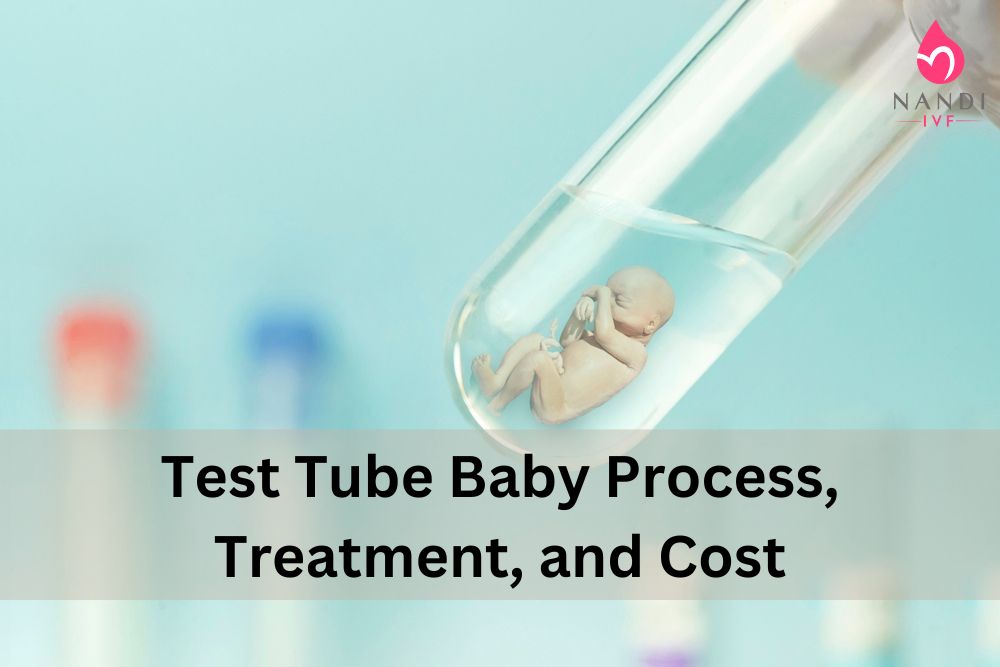

In contemporary India, the prevalence of infertility has led to the widespread adoption of sophisticated medical procedures such as Test Tube Baby or In-Vitro Fertilisation (IVF). Astonishingly, an estimated 27.5 million couples in this nation alone are affected by this distressing condition. However, thanks to the remarkable advancements in reproductive medicine, these couples have been able to realise their long-cherished aspirations of parenthood.
Let’s understand the test tube baby process, the beneficial aspects, the success rates, and the financial investment required for this extraordinary treatment.
With the inception of advanced medical technologies, India has an enormous success ratio in the test tube baby process from 70% – 80%. Younger women are generally more likely to get pregnant via the test tube baby process than elders.
The quality of the egg and sperm used in the test tube baby process is also essential. Additionally, whether infertility is primary or secondary impacts success. Numerous factors can influence IVF success, so it’s important to talk to your healthcare provider to grasp the specific chances based on your situation.
Read Also: Understanding Male Fertility: A Comprehensive Guide to Interpreting Semen Analysis Reports
Below are the listings on getting ready for the test tube baby process.
Read Also: How to Increase AMH Levels Naturally: A Comprehensive Guide
Below are the major stages involved in processing Test Tube Baby. Let’s delve in!
The initial step of IVF is the production of eggs from ovaries. Usually, ovaries release one mature egg each month via ovulation. The egg then travels to the uterus as part of the menstrual cycle. However, more eggs are required to increase the chances of fertilisation in the test tube baby process. To achieve this, the woman is given fertility medications that make the ovaries release multiple mature eggs. This process is called ovarian stimulation.
Throughout this process, the doctor uses ultrasound scans to monitor the growth of the eggs. This step takes about 8 to 12 days. Before starting this step, the doctor also performs tests to analyse the semen and evaluate the uterus and ovaries.
The second step of the test tube baby process starts 36 hours after the last ovary stimulation injection. It’s called egg retrieval, done while asleep but not under general anesthesia.
The process takes 15-20 minutes and needs skilled doctors and technicians to extract healthy eggs. The eggs are then taken to the lab for fertilisation.
During the test tube baby process, the stages of egg retrieval and semen collection coincide. Ideally, the partner visits the doctor’s clinic on the same day to provide a semen sample.
From the semen sample, sperms are extracted and used to fertilise the eggs in the following stage, which takes place within a few hours.
In fertility treatments, two main methods are used for fertilising the eggs:
Additional procedures include:
After fertilisation, the treatment involves transferring embryos to aid in conception, which occurs within 3 – 6 days. The embryologists employ a microscope to examine the embryos and select the most critical ones, which may also conduct genetic testing to identify embryos with favourable chromosomes.
Fertility doctors are true multitaskers, juggling various roles and responsibilities with finesse.
Read Also: Preparing For a Healthy Pregnancy: A Comprehensive Guide for Couples
The test tube baby process could be expensive, but it depends on various factors like the expert, location, and services. It costs around 1.5 Lakhs on average in India.
The common benefits the test tube baby process offers are:
Struggling to conceive can take a toll on mental well-being and relationships. The disappointment and stress of negative pregnancy tests can exacerbate the already difficult situation. Don’t suffer in silence – seek the advice of infertility specialists. Test Tube Baby has brought hope to millions of couples who thought they would never have children. Remember to be good to yourself during the test tube baby process.
Luckily, India is home to some of the world’s best Test-Tube Baby Specialists, offering personalised treatment plans tailored to your needs. Meet with top gynecologists and unlock the miracle of parenthood. Don’t give up hope – your dream of starting a family can become a reality. Contact us right away to get a consultation and begin your reproductive journey with a specialist!
Read Also: Comparing Tubectomy and Vasectomy: Which Option is Right for You?
Read Also: What Is The Best Age To Get Pregnant With PCOS?
Read Also: Understanding Hyperbaric Oxygen Therapy: Cost, Treatment, Procedure, and More
Read Also: After How Many Weeks IVF Pregnancy Is Safe
1
2
3
4
5
6